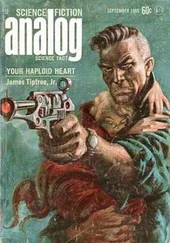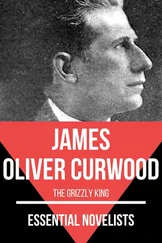"Thank you, Mister Prime Minister," Colonel White said. "But it wasn't us. Our line of control was cut hours ago. Our strategic defense is still entirely inoperable."
Master of the World
Two months later – New York
Former Assistant Secretary-General Robert Milner and Namibian Ambassador Thomas Sabudu paused briefly to be sure everything was in order before stepping onto the elevator. When they reached the British Mission on the 28th floor they were warmly greeted by Jackie Hansen and shown into Hansen's inner office.
"Good afternoon, Bob; Ambassador Sabudu," Hansen said as he left his desk to show his guests to the sitting area in his office. "How have you been, Bob?" Hansen asked.
"Not bad for an old man," answered Milner.
"For an 'old man' you certainly haven't slowed down at all. I think I see you around the U.N. more now than when you actually worked there."
Milner laughed. "Well, now that I don't have to be there, it's a lot more fun."
"So, are you just operating out of your briefcase now?" Hansen asked.
"Oh, no," Milner answered. "Alice Bernley let me set up shop in a spare room down at the Lucius Trust." Jackie brought in tea and scones and the three men sat down to business.
"So, what can I do for you?" Hansen asked, looking alternately at Sabudu and Milner.
"Jon we're here – Ambassador Sabudu officially, and me unofficially – on behalf of certain members of the Group of 77," Milner began, referring to the caucus of Third World countries which had originally consisted of seventy seven countries but which had since grown to include more than one hundred and fifty nations.
"We have come," said Ambassador Sabudu, "because on two previous occasions you have addressed the General Assembly on the subject of reorganizing the U.N. Security Council."
"Yes," Hansen recalled, "once just recently. But I'm sure you understand that on both of those occasions my intent was to dramatize the seriousness of another point. Most recently, it was just after the Russian invasion of Israel and my motion to reorganize the Security Council was to make the point that Russia could not just start invading other countries and assume the United Nations would do nothing about it. It was never my intent that the motion would pass. If Russia had been removed from the Security Council, I think it's a pretty safe bet they'd have dropped out of the U.N. altogether and we'd have lost the opportunities the U.N. provides to settle disputes diplomatically. So, as I said, my motion was simply to make the point, not to actually change the Security Council."
"Yes, of course," Sabudu responded.
"Jon," interjected Milner, "we'd like for you to bring it up again; this time in earnest."
Hansen sat back in his chair.
"Ambassador Hansen," Sabudu began.
"Please, call me Jon."
"All right then, Jon. As you know, many things have changed in the two months since the nuclear devastation of Russia. Many of us in the Group of 77 believe that it is now time for the U.N. to change as well." In truth, the Third World countries had been wanting to change the Security Council since they began to make up the majority of members in the U.N. "It is totally unreasonable," Sabudu continued, "that five nations should exercise such dominance over the United Nations as do the five permanent members of the Security Council." Sabudu's voice was spiced with the conviction of his message.
"Let me assure you, Thomas," Hansen said, taking the liberty to call Sabudu by his first name, "even though my country is one of those five you refer to, I personally share that view."
"Jon," said Milner, "Thomas and I have polled most of the members of the Group of 77 and a great many of them, one hundred and seven at this point, have committed their support to such a motion. Another thirty-two are leaning strongly in our direction.
Hansen raised his eyebrows, a bit surprised at the level of support for the proposition. "But why have you decided that I should be the one to make the proposal?"
"Three reasons," answered Milner. "First, as Thomas said, you've made the motion before. Second, you're very well respected by all the members, especially the Third World countries. And third, because we feel it's absolutely imperative that the motion be made by the Delegate of one of the permanent members of the Security Council. Some members I've talked to have told me that because of the devastation of the Russian Federation, they think that some sort of restructuring will probably occur in the next four or five years, anyway. They're just not sure they want to be involved in rocking the boat to make it happen now. That's why it's so important that one of the permanent members of the Security Council make the motion. Quite frankly, they want someone bigger than them to pin it on if the motion fails. If Britain makes the motion, I believe we can pull all or most of the votes from the third world countries that are leaning our way. With that, we'll be within a dozen votes of the two-thirds majority needed for passage."
"I don't know, Bob," Hansen interrupted, "I have no idea how my government will feel about such a motion. It was one thing for me to make a motion when it had no chance in hell of passing, but it's quite another if it might actually come about. I don't even know how I'd be instructed to vote on such a measure."
"How do you feel about it, personally?" Milner asked.
"As I said, I agree it's unreasonable that five countries should exercise dominance over the U.N., but on the other hand, I'm not sure I know of a better way to run the U.N. and still accomplish as much as we do." Hansen thought for a moment. "Hell – off the record – if we could come up with a more equitable approach and it wouldn't bog down the system for lack of direction and leadership, I guess I'd be for it."
"Would you be willing to work with us to develop such an approach, perhaps based on some regional plan?" asked Sabudu. "And if we are able to come up with something you're comfortable with, would you present it to your government for consideration?"
Hansen nodded and then said, "I'll do what I can. But it's possible that even if we can come up with a workable plan and I can persuade my government to support it, I may not be allowed to actually make the motion if it is felt that by doing so we would anger the other permanent members. Is there any possibility that one of the other permanent members would make the motion?"
"We don't think so," said Milner.
"I see."
Milner opened his briefcase to retrieve a document. "To get the ball rolling on this," he said, "I've brought along a proposal on restructuring the Security Council based on regional entities. We may want to use it as a point of departure, at least, in developing a final plan."
Hansen glanced at the document and put it on the table beside him.
"What Secretary Milner has said about your personal sway with the Third World members was not just flattery, Mr. Ambassador," said Sabudu, becoming more formal to make his point.
"Thank you, Mr. Ambassador," Hansen responded, in-kind.
"Jon," Milner said, "there is one other item which we need to talk about, and I think it may just soften the blow to your government of losing its permanent place on the Council. As you know, in order to ensure impartiality, the Secretary-General has always been selected from among the members of the U.N. who have no ties to any of the permanent members of the Security Council. For years that has served as a major counterweight to the power of the five permanent members on the Security Council. But if the Security Council were reorganized on some other basis, there would be no reason for continuing that requirement. There would be no defensible reason that the Secretary-General shouldn't be from, say, Britain, or the U.S., or any of the other former permanent members of the Council.
Читать дальше












